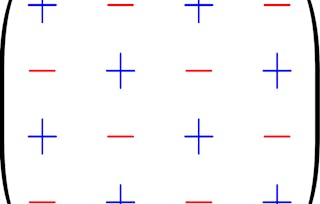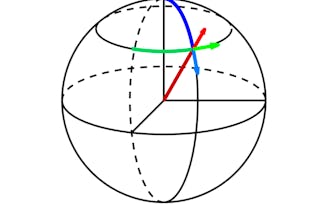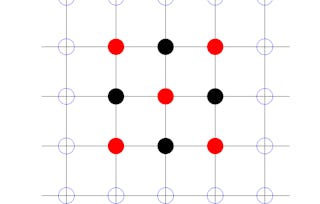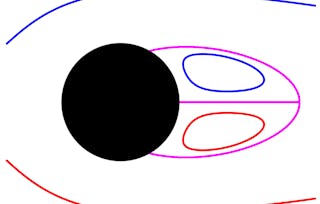This course is all about differential equations and covers both theory and applications. In the first five weeks, students will learn about ordinary differential equations, while the sixth week is an introduction to partial differential equations.

Differential Equations for Engineers

Differential Equations for Engineers
This course is part of Mathematics for Engineers Specialization

Instructor: Jeffrey R. Chasnov
Top Instructor
74,889 already enrolled
Included with
2,219 reviews
Recommended experience
What you'll learn
Separable and linear first-order differential equations, and their applications
Homogeneous and inhomogeneous second-order differential equations, and their applications
The Laplace transform and series solution methods
Systems of differential equations and partial differential equations
Skills you'll gain
Details to know

Add to your LinkedIn profile
25 assignments
See how employees at top companies are mastering in-demand skills

Build your subject-matter expertise
- Learn new concepts from industry experts
- Gain a foundational understanding of a subject or tool
- Develop job-relevant skills with hands-on projects
- Earn a shareable career certificate

There are 6 modules in this course
A differential equation is an equation for a function with one or more of its derivatives. We introduce different types of differential equations and how to classify them. We then discuss the Euler method for numerically solving a first-order ordinary differential equation (ODE). We learn analytical methods for solving separable and linear first-order ODEs, with an explanation of the theory followed by illustrative solutions of some simple ODEs. Finally, we explore three real-world examples of first-order ODEs: compound interest, the terminal velocity of a falling mass, and the resistor-capacitor electrical circuit.
What's included
14 videos13 readings6 assignments
We generalize the Euler numerical method to a second-order ODE. We then develop two theoretical concepts used for linear equations: the principle of superposition and the Wronskian. Using these concepts, we can find analytical solutions to a homogeneous second-order ODE with constant coefficients. We make use of an exponential ansatz and transform the constant-coefficient ODE to a second-order polynomial equation called the characteristic equation of the ODE. The characteristic equation may have real or complex roots and we learn solution methods for the different cases.
What's included
11 videos11 readings3 assignments1 plugin
We now add an inhomogeneous term to the constant-coefficient ODE. The inhomogeneous term may be an exponential, a sine or cosine, or a polynomial. We also study the phenomena of resonance, when the forcing frequency is equal to the natural frequency of the oscillator. Finally, we learn about three important applications: the RLC electrical circuit, a mass on a spring, and the pendulum.
What's included
12 videos9 readings4 assignments
We present two new analytical solution methods for solving linear ODEs. The first is the Laplace transform method, which is used to solve the constant-coefficient ODE with a discontinuous or impulsive inhomogeneous term. The Laplace transform is a good vehicle in general for introducing sophisticated integral transform techniques within an easily understandable context. We also introduce the solution of a linear ODE by a series solution. Although we do not go deeply into it here, an introduction to this technique may be useful to students who encounter it again in more advanced courses.
What's included
11 videos10 readings4 assignments
We learn how to solve a coupled system of homogeneous first-order differential equations with constant coefficients. This system of ODEs can be written in matrix form, and we learn how to convert these equations into a standard matrix algebra eigenvalue problem. The two-dimensional solutions are then visualized using phase portraits. We next learn about the important application of coupled harmonic oscillators and the calculation of normal modes. The normal modes are those motions for which the individual masses that make up the system oscillate with the same frequency. We then apply the theory to solve a system of two coupled harmonic oscillators, and use the normal modes to analyze the motion of the system.
What's included
13 videos10 readings4 assignments
To learn how to solve a partial differential equation (PDE), we first define a Fourier series. We then derive the one-dimensional diffusion equation, which is a PDE describing the diffusion of a dye in a pipe. We then proceed to solve this PDE using the method of separation of variables. This involves dividing the PDE into two ordinary differential equations (ODEs), which can then be solved using the standard techniques of solving ODEs. We then use the solutions of these two ODEs, and our definition of a Fourier series, to recover the solution of the original PDE.
What's included
11 videos11 readings4 assignments
Earn a career certificate
Add this credential to your LinkedIn profile, resume, or CV. Share it on social media and in your performance review.
Instructor

Top Instructor
Explore more from Math and Logic

The Hong Kong University of Science and Technology

The Hong Kong University of Science and Technology

The Hong Kong University of Science and Technology

The Hong Kong University of Science and Technology
Why people choose Coursera for their career

Felipe M.

Jennifer J.

Larry W.

Chaitanya A.
Learner reviews
- 5 stars
88.28%
- 4 stars
10.04%
- 3 stars
1.21%
- 2 stars
0.09%
- 1 star
0.36%
Showing 3 of 2219
Reviewed on Mar 27, 2024
Great videos and an interesting course. Hats off to Prof Jeff and the entire team for their immense efforts in putting this work together. It has been worthwhile for me these past few weeks.
Reviewed on Apr 11, 2021
Excellent course taught by an excellent professor, Dr. Chasnov.Just the right content, just the right pace and practice problems and quiz complemented the course material very well.
Reviewed on Apr 14, 2022
This was a very nice course! I used it to brush up my knowledge rather than learning from scratch, but I think it is well-paced and the lecture notes are superb! Thank you very much!

Open new doors with Coursera Plus
Unlimited access to 10,000+ world-class courses, hands-on projects, and job-ready certificate programs - all included in your subscription
Advance your career with an online degree
Earn a degree from world-class universities - 100% online
Join over 3,400 global companies that choose Coursera for Business
Upskill your employees to excel in the digital economy
Frequently asked questions
To access the course materials, assignments and to earn a Certificate, you will need to purchase the Certificate experience when you enroll in a course. You can try a Free Trial instead, or apply for Financial Aid. The course may offer 'Full Course, No Certificate' instead. This option lets you see all course materials, submit required assessments, and get a final grade. This also means that you will not be able to purchase a Certificate experience.
When you enroll in the course, you get access to all of the courses in the Specialization, and you earn a certificate when you complete the work. Your electronic Certificate will be added to your Accomplishments page - from there, you can print your Certificate or add it to your LinkedIn profile.
Yes. In select learning programs, you can apply for financial aid or a scholarship if you can’t afford the enrollment fee. If fin aid or scholarship is available for your learning program selection, you’ll find a link to apply on the description page.
More questions
Financial aid available,

